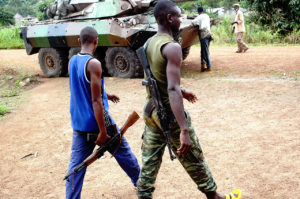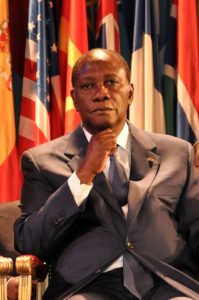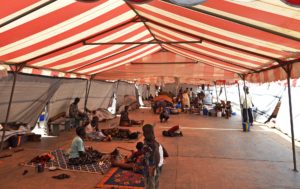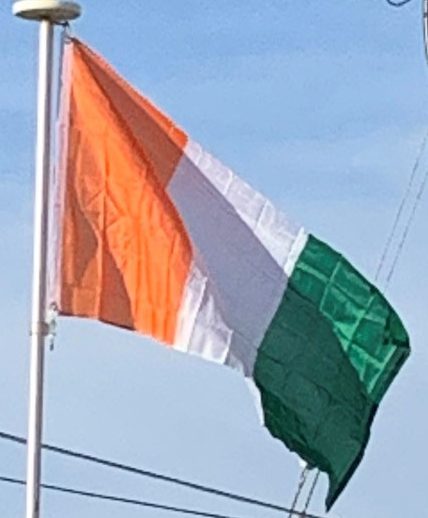
Gbagbo’s original term as president expired on 30 October 2005, but due to the lack of disarmament, an election was deemed impossible, so his term in office was extended for a maximum of one year, according to a plan worked out by the African Union and endorsed by the United Nations Security Council. With the late-October deadline approaching in 2006, the election was regarded as very unlikely to be held by that point, and the opposition and the rebels rejected the possibility of another term extension for Gbagbo. The UN Security Council endorsed another one-year extension of Gbagbo’s term on 1 November 2006; however, the resolution provided for strengthening of Prime Minister Charles Konan Banny’s powers. Gbagbo said the next day that elements of the resolution deemed to be constitutional violations would not be applied.
A peace accord between the government and the rebels, or New Forces, was signed on 4 March 2007, and subsequently Guillaume Soro, leader of the New Forces, became prime minister. These events were seen by some observers as substantially strengthening Gbagbo’s position.
2010 Election:
The presidential elections that should have been organized in 2005 were postponed until November 2010. The preliminary results announced independently by the president of the Electoral Commission from the headquarters of Ouattara due to concern about fraud in that commission. They showed a loss for Gbagbo in favour of former prime minister Alassane Ouattara.

The ruling FPI contested the results before the Constitutional Council, charging massive fraud in the northern departments controlled by the rebels of the New Forces. These charges were contradicted by United Nations observers (unlike African Union observers). The report of the results led to severe tension and violent incidents. The Constitutional Council, which consisted of Gbagbo supporters, declared the results of seven northern departments unlawful and that Gbagbo had won the elections with 51% of the vote – instead of Ouattara winning with 54%, as reported by the Electoral Commission. After the inauguration of Gbagbo, Ouattara—who was recognized as the winner by most countries and the United Nations—organized an alternative inauguration. These events raised fears of a resurgence of the civil war; thousands of refugees fled the country.
The African Union sent Thabo Mbeki, former President of South Africa, to mediate the conflict. The United Nations Security Council adopted a resolution recognising Alassane Ouattara as winner of the elections, based on the position of the Economic Community of West African States, which suspended Ivory Coast from all its decision-making bodies while the African Union also suspended the country’s membership.
2011 Civil War:
The 2010 presidential election led to the 2010–2011 Ivorian crisis and the Second Ivorian Civil War.

International organizations reported numerous human-rights violations by both sides. In the city of Duékoué, hundreds of people were killed. In nearby Bloléquin, dozens were killed. UN and French forces took military action against Gbagbo. Gbagbo was taken into custody after a raid into his residence on 11 April 2011. The country was severely damaged by the war, and it was observed that Ouattara had inherited a formidable challenge to rebuild the economy and reunite Ivorians. Gbagbo was taken to the International Criminal Court in The Hague in January 2016. He was declared acquitted by the court but given a conditional release in January 2019. Belgium has been designated as a host country.
Geography:
Ivory Coast is a country of western sub-Saharan Africa. It borders Liberia and Guinea in the west, Mali and Burkina Faso in the north, Ghana in the east, and the Gulf of Guinea (Atlantic Ocean) in the south.
